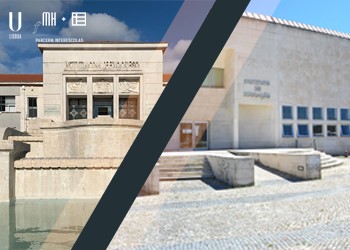Mobility and Learning
The academic content of EMJM FLOURISH Programme will be delivered via face to face teaching at the University of Malta, University of Crete, Greece, University of Lisbon, Portugal, and Stef cel Mare University, Suceava, Romania. The student mobility necessary for completion of the programme requires that all students will need to make three moves and spend one semester in at least three different universities, with the first semester being at the University of Malta. In the fourth semester course participants may follow their studies online, face to face, or blended. They will decide on a dissertation topic and choose a faculty member from any of the partners subject to availability. An optional one week summer school at the University of Pretoria in South Africa will also be organised in the summer term between the first and second year of the course.

As registered students on the FLOURISH EMJM, course participants will be expected to:
- take full advantage of the educational opportunities available to them in the form of lectures, tutorials, group projects, as well as extracurricular activities;
- attend regularly and participate actively in, lectures, tutorials, supervision and mentoring meetings, engaging with other students and teaching staff in intellectual debate and enquiry;
- take responsibility for their own academic progress, be self-motivated and self-directed learners and familiarise themselves with the requirements they must meet to complete their programme;
- submit original, referenced work which is their own and never resort to cheating, plagiarism, collusion and fabrication or falsification of data;
- access their respective Universities’ e-mail account daily, virtual learning platform/s, faculty notice boards / websites on a regular basis;
- meet course work deadlines, and other specific course requirements;
- comply with the Universities’ published legislation, regulations and bye-laws;
- treat academic staff and fellow students with openness, honesty, respect, in all types of interactions, both in face-to-face and virtual interactions;
- take an active role in the promotion of an environment free from harassment and discrimination;
- provide honest and fair feedback about academic and administrative staff and procedures;
- vote in the election for their representatives on appropriate boards and committees and give them their encouragement and support;
- make proper use of any funding, grants and allowances they may be entitled to.
The respective Universities will seek to:
- provide accurate and timely information and advice about the programme, including course regulations, bye-laws, methods of assessment, methods of teaching, attendance requirements, and degree classification;
- provide information about the academic and social facilities and services available for students;
- provide high quality of education, including a high quality of teaching, supervision, curriculum and study-unit content;
- engage in regular quality assurance and evaluation of the programme in order to retain and improve its high academic standard;
- facilitate all aspects of life on campus for students with disability and other individual needs by removing structural and administrative obstacles and provide access arrangements according to their needs;
- offer professional counselling and mentoring services to students;
- involve students in the decision-making process regarding academic matters and all other aspects of student life, including representation on the programme’s boards and committees and the systematic feedback and evaluation of student opinion on the programme;
- guarantee the right of every student, notwithstanding the existence of formal representation, to convey personal or collective opinion to the university’s authorities;
- maintain independent and impartial procedures for dealing justly with appeals, harassment, complaints and redress;
- handle students’ records and personal information ethically and confidentially. Students will have the right to view their own records of academic progress so as to be able to improve the quality of their learning.
A Student Agreement based on these rights and obligations will be signed by each course participant at the commencement of their studies.





